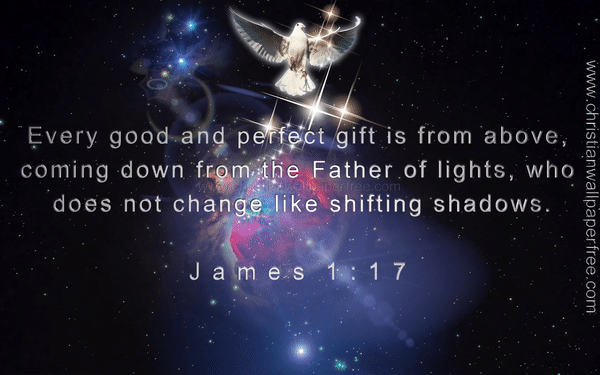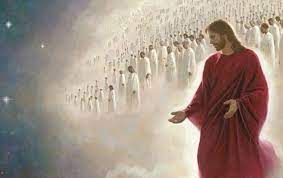
The Speed of Dark
See also:

See also:
 I'm reading a book in bed at night. My room is brightly lit by a table lamp. When it's time to get some sleep, I put the book aside, switch off the light and "instantly" my room is flooded with Dark. Instantly? No, my freshman physics tells me that photons from the light source had been flooding the room traveling about one foot per nanosecond. (A nanosecond is a billionth of a second, or 186,000 miles per second). I am supposed to believe that darkness is the absence of light. But that can't be quite right.
I'm reading a book in bed at night. My room is brightly lit by a table lamp. When it's time to get some sleep, I put the book aside, switch off the light and "instantly" my room is flooded with Dark. Instantly? No, my freshman physics tells me that photons from the light source had been flooding the room traveling about one foot per nanosecond. (A nanosecond is a billionth of a second, or 186,000 miles per second). I am supposed to believe that darkness is the absence of light. But that can't be quite right.
I remember when I was a kid I became aware of strange creatures living under my bed. I cried out to my mommy who came to my rescue, switching on the light and having me see for myself that there was only dust under my bed, old slippers and sox. I was supposed to outgrow all that mythology, the fairy stores, ghosts, and legends. But if we move on to embrace grown-up realities only, silencing our imagination, and stop dreaming--our world is soon barren, sterile, boring.
Our better teachers in school are often able to read us fairy stories and folklore, legends of the dark-side, and reintroduce us to those things in the universe that are unseen. Shakespeare doesn't avoid the subject.
I am supposed to know all there is to know about light on account of I studied physics in grad school at Stanford. In 1986 I met an amazing Australian astronomer, Barry Setterfield, who stretched my boundaries to the limit about what was real and what was on the fringes of physics in regard to light and lightspeed "c". The ZPE, "Zero Point Energy" is all too real, for instance. So are photons, apparently, yet they have no mass. The aether--empty space--is full of "virtual particles" popping in and out of existence constantly. SciFi was never this good.
What in the world is the "speed of dark?" The real paradoxes and conundrums arise when we add in Biblical revelation about light--starting with Genesis One.
"We were talking about God's spiritual light in recent emails. You mentioned the nerves and brain electrical firing. It caused me to think about the scripture in John chapter 1:4 where it says "in him was life and the light was the life of men" I was thinking about how electricity is plasma energy and how really strong plasma energy as in solar storms, fire tornadoes, regular tornadoes produces winds. And how the Spirit Is ruach or pneuma which is breath. The breath of life in Genesis, God is Light, Life, Spirit... Is that where you were going with that." --Traci Staples

![]()
In the beginning God created the heavens and the earth. 2 The earth was without form and void, and darkness was upon the face of the deep; and the Spirit of God was moving over the face of the waters. 3 And God said, "Let there be light"; and there was light. 4 And God saw that the light was good; and God separated the light from the darkness. 5 God called the light Day, and the darkness he called Night. And there was evening and there was morning, one day. 14 And God said, "Let there be lights in the firmament of the heavens to separate the day from the night; and let them be for signs and for seasons and for days and years, 15 and let them be lights in the firmament of the heavens to give light upon the earth." And it was so. 17 And God set them in the firmament of the heavens to give light upon the earth, 18 to rule over the day and over the night, and to separate the light from the darkness. And God saw that it was good. 19 And there was evening and there was morning, a fourth day... 2:1 Thus the heavens and the earth were finished, and all the host of them. 2 And on the seventh day God finished his work which he had done, and he rested on the seventh day from all his work which he had done. 3 So God blessed the seventh day and hallowed it, because on it God rested from all his work which he had done in creation. 4a These are the generations of the heavens and the earth when they were created... First Problem: "God is Light" says 1 John 1:5. The universe as newly created must be a "Bubble of Dark?" God is outside, looking in? He decides we need some light sun, moon and stars inside our space-time bubble? The stars are evidently "light holders," cosmic lanterns? The stars are not portholes however. The light they emit is created light (photons). The universe is not pantheistic. Spiritual light, namely God, does reside in men and angels. Spiritual light, can, however be perverted. The conjecture that we live inside a Dark Bubble is intriguing. More on this later. Side Note: Lucifer is one of various figures in folklore associated with the planet Venus. Originally stemming from a son of the personified dawn, the goddess Aurora, in Roman mythology, the entity's name was subsequently absorbed into Christianity as a name for the devil. Modern scholarship generally translates the term in the relevant Bible passage where the Ancient Greek figure's name was historically used (Isaiah 14:12) as "morning star" or "shining one" rather than as a proper noun, Lucifer. As a name for the Devil in Christian theology, the more common meaning in English, "Lucifer" is the rendering of the Hebrew word הֵילֵל (transliteration: hêlēl; pronunciation: hay-lale) in Isaiah given in the King James Version of the Bible. The translators of this version took the word from the Latin Vulgate, which translated הֵילֵלby the Latin word lucifer (uncapitalized), meaning "the morning star, the planet Venus", or, as an adjective, "light-bringing."As a name for the planet in its morning aspect, "Lucifer" (Light-Bringer) is a proper noun and is capitalized in English. In Greco-Roman civilization, it was often personified and considered a god and in some versions considered a son of Aurora (the Dawn). A similar name used by the Roman poet Catullus for the planet in its evening aspect is "Noctifer" (Night-Bringer). (Wikipedia) The kingdom of darkness and of Satan is the kingdom where Satan, the devil, rules and controls. ...In this kingdom are the fallen archangels and angels, demons, agents of darkness, witches and wizards, unbelievers, and all beings who are under the command of Satan and are his servants and worshipers. Colossians Chapters 1 says followers of Christ don't live there no mo.' We's been translated out of there. Another interesting reference to God in astronomy is found in James: "Every generous act of giving, and every perfect gift, is from above, coming down from the Father of (the) lights, with whom there is no variation (parallax) or shadow due to change (eclipsing). In fulfillment of his own purpose he gave us birth (begat us again) by the word of truth, so that we would become a kind of first fruits of his creatures." (James 1:17, 18)  |
The Creation of Dark
| July 9, 2023
|
Dividing Light from DarknessInitially, the created cosmos was in darkness—a darkness that God Himself had to create “I form the light, and create darkness”. (Isaiah 45:7). But then the dark cosmos was energized by the Spirit’s moving, and God’s light appeared. The darkness was not dispelled, however, but only divided from the light, and the day/night sequence began, which has continued ever since. This sequence of events in the physical creation is a beautiful type of the spiritual creation, “a new creature” (2 Corinthians 5:17). Each individual is born in spiritual darkness, but “God, who commanded the light to shine out of darkness, hath shined in our hearts, to give the light of the knowledge of the glory of God in the face of Jesus Christ” (2 Corinthians 4:6). We are now “partakers of the inheritance of the saints in light,” because He “has delivered us from the power of darkness” (Colossians 1:12-13). However, the light in the primeval darkness resulted only in a division of night and day. The night still comes, but God has promised that in the coming Holy City, “there shall be no night there/ (Revelation 22:5). Just so, even though we have been given a new nature of light, the old nature of darkness is still striving within, and we have to be exhorted: “For you were once darkness, but now are ye light in the Lord: walk as children of light” (Ephesians 5:8). Nevertheless, “the path of the just is as the shining light, that shines more and more unto the perfect day” (Proverbs 4:18). When we reach that city of everlasting light, all spiritual darkness will vanish as well, for “there shall in no wise enter into it any thing that defiles” (Revelation 21:27), and we shall be like Christ. --Henry M. Morris |
The Age of Enlightenment (Wikipedia)
Science in the Age of Enlightenment (Wikipedia)
Articles on Science and Creation
![]()

First its important to understand what will happen to a person that views the full glory of God directly, in short, instant death (Exodus 33:20). A person is incapable of taking in all that God is in His glory and living through the experience. Ever had your breath taken away by something truly spectacular? Now multiply that feeling by millions and I think you will get the point. So, specifically when God is within the reaches of human contact, He dwells in thick darkness so that his glory doesn’t completely consume those He loves…” (Adam J. Walker)
 American science fiction author and editor Lester del Rey wrote, "Even the devoted aficionado or fan—has a hard time trying to explain what science fiction is," and the lack of a "full satisfactory definition" is because "there are no easily delineated limits to science fiction."
American science fiction author and editor Lester del Rey wrote, "Even the devoted aficionado or fan—has a hard time trying to explain what science fiction is," and the lack of a "full satisfactory definition" is because "there are no easily delineated limits to science fiction."
According to Isaac Asimov, "Science fiction can be defined as that branch of literature which deals with the reaction of human beings to changes in science and technology."
Robert A. Heinlein wrote that "A handy short definition of almost all science fiction might read: realistic speculation about possible future events, based solidly on adequate knowledge of the real world, past and present, and on a thorough understanding of the nature and significance of the scientific method."
In other words, light from God dispel darkness in society: ignorance, cover-ups, lies.
My friend Traci Staples commented on the draft of this article as follows:
I just read the article on the speed of dark. When I think about the unapproachable darkness that surrounds God, the things that come to mind are: The cloud on top of Mount Sinai where Moses met with God. There were lightning and thunders. When Moses came down his face shone like he had been irradiated. The pillar of cloud that followed Israel in the desert. The cloud that filled the Temple when Solomon dedicated the Temple of God. The darkness that fell when Jesus was on the cross. This darkness seems to be very different than the darkness in the Bible that is associated with evil. I have not done a word study on it, but possibly different words with different meanings are used for these different kinds of darkness...Some subtleties are often lost in translation.
Traci called my attention to two books by Miles Pelton, "Between Alpha and Omega" and "First Law of Physics: Let there be Light." It was these books that jolted my thinking: The visible, tangible world is only a shadow of a vast unseen universe! The created order is but shadowland.


![]()

Isaiah 59 1 See, the Lord’s hand is not too short to save,
|
Man, in his weakness, confusion, blindness and failure, and God, in his majesty, his greatness and power. To be "a man of God" is the greatest title that could be bestowed upon Timothy. Every one who has the Spirit of God indwelling him has the desire to claim that title for himself -- to be a man or a woman of God, not a man of the world, not a man of the flesh, but a man of God.
My wife and I drove down from Oregon yesterday. She was driving as we traveled through that beautiful area around Mt. Shasta, while I was working on the last phases of this message. We swung around a mountain curve, and there was Mt. Shasta in all its beauty, with a new coating of fresh fallen snow glistening in the sun. At the foot of the mountain there is a relatively small cinder cone, named Black Butte, which has a remarkable resemblance in form to Mt. Shasta. (It looks as though somebody made a model of the mountain first and then built the mountain.) I was thinking of this phrase, "O man of God," and it suddenly struck me that those two mountains were symbolic of it: Black Butte, symbolizing man in his smallness and weakness, and the majesty, beauty and glory of the great white mountain, symbolizing the majesty of our God. The glory of Christianity is that those two, man and God (God in man) are combined together. This is the title that is bestowed on Timothy.
What does a man of God do in a world like ours? There are three imperative verbs here that mark what Paul said Timothy ought to do: First, "shun all this"; second, "aim at righteousness, godliness, faith, love, steadfastness, gentleness"; and third, "fight the good fight of the faith."
Those are three verb forms which translated literally are words that all start with the letter "f." This will help us remember them. The first word is, flee; the Christian is to flee certain things. The second word is, follow; follow after, set yourself every day to pursue these qualities. Then the third word is, fight. I want to look briefly at these imperatives because they are helpful to us in this day.
First, "flee these things." Elsewhere in Scripture we are told to flee certain things. For instance, we are to "flee immorality" always. Peter says, "Flee youthful lusts which war against the soul." (1 Peter 2:11 KJV). There are times in our Christian life when the only defense we have is a clean pair of heels. Get up and go; flee these things.
Paul is here referring to what he has just covered in the previous paragraph in his word about false teachers. Timothy is to flee the three characteristics of false teaching: The first characteristic is conceit -- taking pride in knowledge and relying upon that as a basis for success. If we are going to be men and women of God we are to flee conceit in any form.
The second characteristic is "combativeness," the love of controversy. Some people love to get an argument going among the people of a church. This is a mark of a false teacher: he always wants to form a faction around an idea he has that is different than everybody else's. That is to be fled from.
The third thing is avarice, greed, the love of money, the hunger for material gain, the desire to drive a Cadillac, a Rolls Royce or a Porsche, and to eat high off the hog (as they used to say in Arkansas or Montana). Paul tells Timothy to flee these things; they will only create difficulty in life.
Paul's second imperative, "follow after," is most important. He lists six things which divide into two groups -- the first three relating to God, the second three relating to man. The first thing on the list, righteousness, is very important. Paul says, "Follow after righteousness, godliness, and faith." Some of the commentators take this to be righteous behavior, saying that you are to try to live a righteous life. That is not wholly wrong because men or women of God are to be righteous in their behavior. But that is not what Paul is talking about here. Paul is referring to righteousness, not as behavior, but as belief. It is the word of the gospel, that when you came to know Jesus Christ he gave you his righteousness; and, as you understand that this is the way God sees you, you are no longer guilty, no longer tied to evil, no longer filled with weakness, but made righteous by God.
This is what gives a sense of security and stability in life. If you are always focusing on your behavior, trying to get a sense of worth because you act right, you will end up becoming a legalist, feeling that your behavior is what makes you acceptable before God -- and that is sheer death. But if you understand that God has already made you acceptable in Jesus Christ when you believed in him, and, therefore, that God loves you with the same love he had for Jesus himself, because in his sight you are as righteous as Jesus is, this gives you a sense of security and loving acceptance. That is the basis of stability and of proper functioning in life, and that is why Paul puts it first here: "Remember, Timothy, to follow after that consciousness that you are already righteous in Jesus Christ."
The second word is godliness. This is the word we have seen so many times already in this letter. It means balanced wholeness -- spirit, soul and body being kept in good health. These days we see great emphasis on keeping our bodies healthy. An amazing amount of stuff is offered -- pulleys, straps, weights, jogging shoes, etc. -- to that end. Now there is nothing wrong in keeping the body healthy, but it is wrong to spend all your money doing that. What is also needed is a renewed mind that views life the way God sees it because that is the way life really is; emotions that are brought under control so that they do not keep you off balance all the time, so subject to moods that no one knows whether you are going to be in a good or a had mood: and, above all, a spirit that is in touch with the living God, that is not merely living for the visible things of life, but sees a relationship with God himself as the most important factor in life. That is godliness, balanced wholeness.
The third word is fidelity, or faithfulness, i.e., a loyalty to God, an awareness that you have already committed your life to him. When you became a Christian you decided to follow God, to obey his word and to walk in his way. That is your basic commitment for the rest of your life; you never intend to change. When a young man or a young woman or an older man or woman), has that kind of a relationship, he or she becomes a steady, dependable, exciting person. There is nothing more exciting than the living God.
That issues then in three words which have to do with the way Timothy treats people: The first word is love. How many times in Scripture do we have the exhortation that the mark of a true Christian is that he is a loving person! "Owe no man anything," Paul says in Romans, "but to love one another," (Romans 13:8a KJV). Here in this very letter to Timothy, Paul opens with the words, "the end of our endeavor is love out of a pure heart and faith unfeigned," (1 Timothy 1:5). I do not think there is anything that shocks me more than to suddenly ask myself in the midst of a conversation, "Am I acting in love? Is my tone of voice loving, or is it sharp, caustic, filled with anger and hostility?" Many times I have to realize that the love that God has given me is not coming through at all.
Yet, this is the mark. Above all else in our relationship with people, the sign that we have really been touched by the Spirit of God is that we are becoming loving people. Is our home becoming a loving home, where we relate to each other with attitudes of concern for the others' welfare? That is also the mark of a growing church. I do not care how big the numbers are. That does not tell a thing. Some of the cults can fill the largest halls but numbers do not mean the church is growing. It is when the people are growing in love that you have a church that is alive.
The second word is steadfastness. That means endurance, hanging in there, refusing to give up. That is one of the most contagious things in life. When things get tough and somebody says, "I've had it. I'm not going to try anymore, it is amazing how quickly people pick up that note and say, "Me too. It's not worth it." Soon people all around you start quitting. On the other hand, it just one person will say, "Sure it's tough, but let's keep going. God is with us. If we hang in there we're promised victory, somebody else will pick that up and it will spread like a beautiful contagion through an entire congregation. Unwillingness to quit is the mark of a Christian man or woman of God in the midst of a world that has gone wrong.
Paul says, "Pursue these," i.e., make a mental list of these qualities. There are only six of them. Ask yourself every day, "Is this happening in my life?" There is no more practical guideline in the Scriptures than Paul's word in Second Corinthians, "Examine yourselves whether you be in the faith or not," (2 Corinthians 13:5). Something every Christian ought to do every day is take a quick mental checkup and ask himself, "How am I behaving? What's happening in my life? Where is it all coming from?" This is especially true if you want to affect the day in which you live.
The third word for the man or woman of God is fight: "Fight the good fight of faith. Lay hold on eternal life to which you have been called when you made the good confession before many witnesses," Paul says. That recognizes the true nature of the Christian life: it is a battleground, and you will never be given much of a breather. Many people have trouble there. They are always hoping that the battle will end, that the enemy will give up and go home, and they can begin to enjoy life without any troubles. That would be nice. That is what the Republicans and the Democrats are always offering. But it never happens, because this life is a battleground and we must never forget that. Do not expect much of a breather. God gives you times of peace, times of enjoyment and you should thank him for them. But remember, we are exposed all our life to a malevolent and ruthless enemy who knows exactly how to get at us, how to discourage us, how to make us angry with each other, how to plant seeds of hostility and unrest between a husband and wife, in a family or in a community, and he is always doing that. The battle is fought right there.
Paul tells us how to fight the good fight of faith. "Take hold of that eternal life with which you began this Christian experience," he says. This is a parallel passage to that famous word in Ephesians 6, where Paul says, "Put on the whole armor of God that you may be able to stand against the wiles of the devil, and stand in the evil day," (Ephesians 6:11 KJV). To "put on the whole armor of God" and to "take hold of that eternal life" are one and the same thing. That armor is Jesus Christ -- his strength, his wisdom, his love, his gentleness, his peace appropriated in your life; he is in charge of what is happening to you, and you rest on that fact. That is the way you fight the good fight of faith; that is the way you take hold on life eternal. This is what happened to Timothy.
Paul reminds him, "Timothy, you started doing that when you confessed Christ. Keep it up This is what God has called you to." Remember that word in First Corinthians 1:9, the key verse of that great letter. Paul says, "God is faithful, by whom you were called into the fellowship of his Son, Jesus Christ our Lord," (1 Corinthians 1:9 RSV). That is what we are called to. It is what Brother Lawrence called, "practicing the presence of Christ."
Do you do that? When you are washing dishes at the sink, do you practice the presence of Christ? When you are at work in your office, or talking on the telephone, or dealing with your children, or shopping in the market, wherever, do you practice the presence of Christ? -- reminding yourself that He is with you, empowering you and teaching you how to react, bringing to your remembrance things that you need to know about relationships and then obeying him. This is the way you fight the good fight of faith and lay hold of that eternal life to which you have been called. That is the secret of the Christian life.
So the man of God does three things in life: He flees certain things; he follows after the qualities listed; and he fights the good fight of faith by taking hold of the provision of Jesus Christ our Lord.
Paul now turns to the other side: The God before whom we stand. In these verses the apostle flings back the boundaries of life and, for our encouragement, opens to our amazed eyes the vision of the mighty God before whom we stand. Listen to these words:
In the presence of God who gives life to all things, and of Christ Jesus who in his testimony before Pontius Pilate made the good confession, I charge you to keep the commandment unstained and free from reproach until the appearing of our Lord Jesus Christ; and this will be made manifest at the proper time by the blessed and only Sovereign, the King of kings and Lord of lords, who alone has immortality and dwells in unapproachable light, whom no man has ever seen or can see. To him be honor and eternal dominion. Amen. (1 Timothy 6:13-16 RSV)
Nothing will help more to nerve you for the fight than the vision of God. This is what Paul sets before Timothy. Notice the encouraging things here. First, God is the Giver of life.
Do you sometimes feel beaten and dejected, buffeted by more things than you can handle, at the end of your strength? What you need is renewed vigor, renewed vitality and strength, and that is what you get when you turn to your God and see him as there with you to infuse strength and vitality back into you again. This is the part that prayer plays in our lives. We all have experienced the infusion of new strength and courage from God when we have turned to him in prayer in a moment of pressure. God is given to us that we might not lose heart when the times of discouragement come. Turn to him as the Author of life.
Then, as Paul points out, there is the encouragement of the example of Jesus. Do you find it hard to admit your Christian faith at times in certain pressure groups? Then, think of Jesus, "who in his testimony before Pontius Pilate made the good confession." Pilate examined Jesus and found no fault in him. Then Pilate asked him a question and Jesus' answer would determine whether he would live or die. Pilate was anxious to set him free if he could because he recognized Jesus to be a righteous, innocent man whom the chief priests had delivered up for jealousy. "Are you the King of the Jews?" (Matthew 27:11 RSV), Pilate asked him. Jesus could have said "No," but thereby he would have denied his Messiah-ship; he was the King of the Jews. He knew that if he said "Yes," there was no way he could escape being put to death because the Jews would then charge Pilate with befriending a traitor to Caesar if he did not put him to death. That is what sealed Jesus' fate. He knew it, but he answered with the strongest affirmation that the Hebrew idiom has, "Thou sayest," or, "You are saying it," (Matthew 27:11b KJV). That cost him his life.
Paul is reminding Timothy, "There will be times when you will have to say "No," when you want to say "Yes," and everybody around you wants you to say "Yes." There will be times when it will be embarrassing to admit you are a Christian, but remember Jesus. He set the good example; he was the "faithful witness" (Revelation 1:5) to the truth.
Furthermore, Paul goes on to remind Timothy that, though Jesus was put to death in weakness, he is coming again as the Lord of life, the focus of all history. Paul goes on to say, "I charge you to keep the commandment unstained and free from reproach until the appearing of our Lord Jesus Christ." The One who was here in weakness is coming again in great strength and will fill the horizon of life.
What is this commandment Timothy is to keep? There is only one answer to that: This is a reference back to Jesus' words in the Upper Room, when he gave us the Lord's supper. He said then, "A new commandment I give unto you, that you love one another as I have loved you," (John 13:34a KJV). That is the commandment: "Love one another." Learn to be loving people; learn to forgive, to reach out and to think of others instead of yourself. Love is the central thing. Paul tells us in Romans 13 that "love is the fulfilling of the law," (Romans 13:10). When you act in love you are keeping the Ten Commandments. Paul reminds Timothy now, "Keep that commandment unstained, without reproach," i.e., by the way you live. Do not go too far in your love; do not let it bring you into lust.
Some may say, "It's already too late for me." Well, remember that the blood of Jesus Christ, God's Son, cleanses from all unrighteousness. It is not too late for those who have fallen in this regard because of the provision God has made for cleansing. But we are to take advantage of that provision by allowing ourselves to be cleansed by the confession of our sin. "The blood of Jesus Christ then cleanses us" (1 John 1:7b), and thus we "keep the commandment without stain and reproach until the appearing of our Lord Jesus Christ."
Jesus is coming again. There is nothing more certain than that. Somebody said to me the other day, "I'm going to do such and such, as sure as the sun is going to come up tomorrow morning." The sun may not come up tomorrow morning, however; we cannot be sure of that. But one thing we can be sure of is that Jesus Christ is returning to this earth. Scripture says so. We do not know when (Paul goes on to speak to that) because the times are in God's hands. But Paul is certain that Jesus will appear and when he does, all that we have struggled for in obscurity and weakness shall be brought out into light. This is an encouragement to our hearts.
Paul closes with a final word about the greatness and majesty of God. There is no more moving passage in all of Scripture than this, where God is set forth in his sovereign might. Verse 15:
...and this will be made manifest at the proper time by the blessed and only Sovereign, the King of kings and Lord of lords, (1 Timothy 6:15 RSV)
When is Jesus coming? Many are asking that question these days. Are we in the "last days"? Is the "man of sin" about to appear on the earth? Are we facing the great tribulation? Is the antichrist at hand? Are we in the last season?
These questions have been asked in every age. Notice what Paul says, "It is in God's hands. The Father has appointed the times and the seasons." The literal phrase is, "It is in its own time." Paul does not tell us whether it is going to be soon or later, but it will be when God is ready. And God is getting ready. I do not know how long it is going to take, but it will come, it is in its own time, because history is moving according to the plan and the program of God.
Remember that God is King over all the kings of earth. We are concerned about the great military might of Russia, which is building up at an unconscionable pace right now, and what is going to happen when it has its arsenal built to such a point that it has clear superiority over all the other nations, including the United States. The only answer that can satisfy a believer is that God is "King of kings and Lord of lords." All the great lords of earthly power are subject to his control.
Proverbs says, "The heart of the king is in the Lord's hand and he turns it whithersoever he will," (Proverbs 21:1 KJV). These men are not in ultimate control. Knowing this we can find peace and a sense of security in our troubled day.
God is unique in his majesty: " [he] alone has immortality," Paul says. That means deathlessness. He alone is able to conquer this great enemy, death. Immortality belongs to the gospel, and only those who believe the gospel can survive the emptiness and the corruption of death. Scripture everywhere tells us that.
Further, Paul says, God "dwells in unapproachable light." What majesty that pictures! The sun is the greatest manifestation of light we know today. On earth the nearest thing we have to it is the fireball caused by the explosion of a hydrogen bomb, the light of which is dazzling, blinding in its effect. Here is a symbol of the majesty of God. There is no one remotely like him. He is not a tired old grandfather up in glory, twiddling his thumbs, saying, "Tut, tut. What terrible things are happening down there!" No, God dwells in unimaginable light, in power, and majesty beyond our capacity to describe. No one can draw near to this light apart from the provision he has made through Jesus Christ our Lord.
Finally, God is invisible, the invisible Spirit, "whom no man has ever seen or can see." The most incredible mystery of Christianity was the night when, in a dirty stable in a cave in Bethlehem, a baby was born of whom the angels sang, "This day in the City of David is born unto you a Savior which is Christ the Lord, Emmanuel, God with us," (Luke 2:11). That is the wonderful message of Christmas. The great news of the gospel is that the invisible God has become visible in a Man. We cannot see God, but we can see Christ. This at last is where God is put on our level so that we can know the unknowable God. No wonder Paul ends with the word of worship To him be honor and eternal dominion. Amen. (1 Timothy 6:16b RSV) --Ray Stedman, O Man of God!
![]()
![]()
What Holds the Universe Together?
The Uniqueness of Creation Week
I Sing the Mighty Power of God

![]()


![]()
Lambert Dolphin

